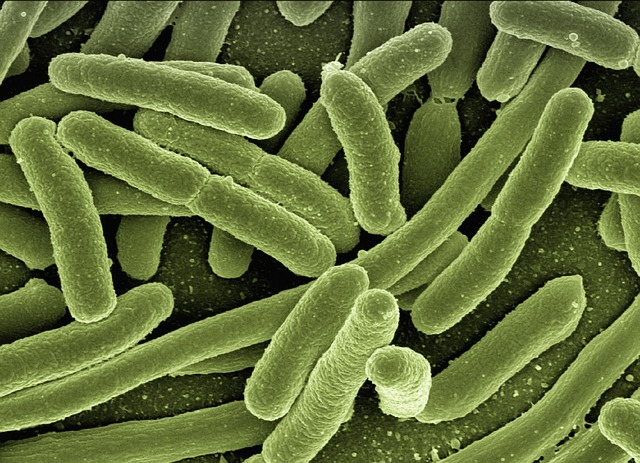Parkour, the art of moving fluidly through urban and natural environments, demands a unique blend of strength, agility, balance, and endurance. While technique and practice form the backbone of a parkour athlete’s training, nutrition and lifestyle choices are equally essential for sustaining the energy required to jump, vault, and glide. A well‑structured diet provides the fuel, the building blocks, and the recovery support that keep the body primed for high‑intensity, explosive movements.
Understanding the Energy Needs of Parkour
Unlike steady‑state cardio, parkour pushes the body through short bursts of maximal effort followed by brief recovery periods. This type of training relies heavily on the phosphocreatine system and anaerobic glycolysis for immediate energy, with the aerobic system kicking in during longer or more frequent sessions. Because of this, athletes need a balanced mix of carbohydrates for glycogen stores, proteins for muscle repair, and healthy fats for hormone regulation and sustained energy. The goal is to keep glycogen levels high enough to sustain repeated jumps while ensuring protein synthesis keeps pace with the muscle micro‑damage that occurs during flips and wall runs.
Macronutrient Distribution
For most parkour practitioners, a macronutrient split of 45–55% carbohydrates, 25–30% protein, and 20–30% fat works well. This ratio supports quick energy release, muscle recovery, and overall health without excessive caloric intake. A typical day might include a high‑carb breakfast, lean proteins at lunch, and a balanced dinner with vegetables and healthy fats. Remember, quality matters as much as quantity: choose complex carbs like oats, sweet potatoes, and whole grains; opt for lean protein sources such as chicken breast, fish, legumes, and dairy; and include omega‑3 rich foods like salmon, walnuts, and chia seeds.
Pre‑Training Nutrition: Fueling the Moment
Effective pre‑training meals are designed to maximize glycogen stores, ensure adequate hydration, and provide a steady release of energy. Consuming a balanced meal 3–4 hours before training allows digestion to clear while still providing fuel. A typical pre‑parkour meal might be a bowl of oatmeal topped with banana slices, a drizzle of honey, and a handful of almonds, paired with a glass of water or a low‑sugar electrolyte drink. If training is scheduled within an hour, a smaller snack such as a Greek yogurt with berries or a slice of whole‑grain toast with peanut butter can keep hunger at bay without causing stomach discomfort.
Timing Tips for Peak Performance
- Plan a full meal 3–4 hours before parkour sessions to allow for digestion and glycogen storage.
- Choose easily digestible foods if you have a short lead time; avoid heavy, high‑fat meals that can cause sluggishness.
- Keep hydrated by drinking 500–700 ml of water or a balanced electrolyte beverage in the 30 minutes before training.
- After training, consume a protein‑rich snack within 30 minutes to kickstart muscle repair.
Post‑Training Recovery: Rebuilding the Body
Recovery is as critical as training itself. Within the post‑exercise window, the body’s capacity to replenish glycogen and synthesize new proteins is at its peak. Consuming a mix of carbohydrates and protein within 45 minutes after training promotes rapid glycogen restoration and muscle repair. For example, a smoothie made from Greek yogurt, frozen berries, a scoop of whey protein, and a splash of almond milk can provide the necessary macronutrients while also delivering antioxidants that help mitigate oxidative stress from intense movements.
Micronutrients That Support Parkour Performance
- Vitamin D – Essential for bone health and muscle function; sun exposure and fortified foods help maintain adequate levels.
- Calcium & Magnesium – Crucial for muscle contraction and relaxation; dairy, leafy greens, nuts, and seeds are good sources.
- Iron – Supports oxygen transport; iron‑rich foods like lean red meat, spinach, and lentils, paired with vitamin C for absorption, are recommended.
- Zinc – Important for immune function and protein synthesis; found in oysters, beef, pumpkin seeds, and beans.
Hydration Strategies for Explosive Movements
Dehydration can reduce power output, increase fatigue, and impair reaction time—all of which can compromise parkour performance. The general rule is to drink at least 500 ml of water an hour before training and continue sipping throughout the session. During longer sessions, electrolyte‑rich drinks can help replace sodium and potassium lost through sweat. Monitoring urine color—aiming for a pale, straw‑like hue—provides a quick check on hydration status.
Supplementation: When and How?
While a balanced diet usually covers nutritional needs, certain supplements can enhance performance and recovery when used appropriately. Creatine monohydrate, for example, has been shown to improve power output and muscle mass in explosive activities; a daily dose of 3–5 g is typically sufficient. Beta‑alanine can reduce muscle fatigue during high‑intensity bursts, and branched‑chain amino acids (BCAAs) may help prevent muscle breakdown during longer sessions. It’s best to consult a sports nutritionist before beginning any supplementation regimen.
Lifestyle Factors That Complement Nutrition
Nutrition is only one pillar of a healthy parkour athlete’s regimen. Sleep, stress management, and structured recovery days all play integral roles in sustaining performance. Eight hours of quality sleep per night facilitates hormone balance, muscle repair, and neural plasticity—key components for learning new moves and maintaining coordination. Incorporating mindfulness practices such as yoga or meditation can reduce cortisol levels, helping athletes recover more efficiently after intense sessions. Additionally, scheduling active rest days—light walks, mobility drills, or gentle stretching—allows the nervous system and muscles to recuperate while maintaining movement patterns.
Putting It All Together: A Sample Weekly Plan
“A parkour athlete’s routine should feel like a balanced equation: training equals nutrition plus rest.”
- Monday: Skill work (vaults, precision jumps) + light mobility; post‑training smoothie.
- Tuesday: Strength session (plyometrics, core); carb‑rich dinner; ample protein intake.
- Wednesday: Recovery day – gentle yoga and stretching; focus on hydration and micronutrient intake.
- Thursday: Urban exploration + endurance run; pre‑training oatmeal, post‑run protein shake.
- Friday: Mixed skill circuit; incorporate creatine supplementation if desired.
- Saturday: Long session (multiple routes) + active recovery; emphasize electrolytes during breaks.
- Sunday: Rest; deep sleep; meal planning for the week ahead.
Final Thoughts on Fueling Your Parkour Journey
In the world of parkour, where every leap, vault, and wall run hinges on explosive power and precise coordination, fueling the body with the right nutrients and supporting lifestyle habits can make a measurable difference. A holistic approach—combining balanced macronutrients, strategic timing, adequate hydration, thoughtful supplementation, and consistent recovery practices—creates a foundation upon which skill, confidence, and resilience can flourish. By treating nutrition as a core training component rather than an afterthought, parkour practitioners can achieve greater consistency, reduce injury risk, and unlock their full potential.




